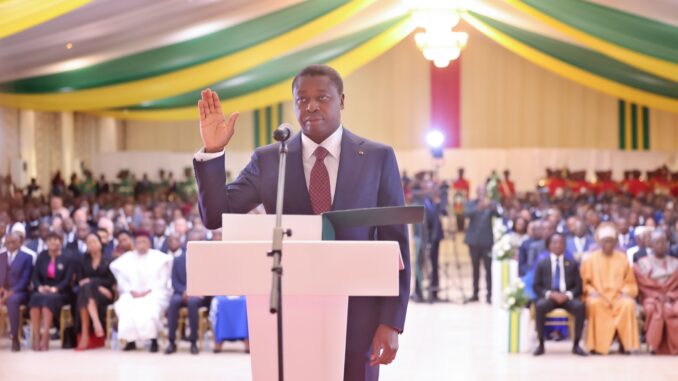
Togo has entered a new political epoch this weekend as President Faure Gnassingbé was formally sworn in as Chairman of the Council of Ministers — a role that now carries the full weight of executive authority under the country’s controversial shift from a presidential to a parliamentary system.
This transition, effected through a constitutionally enshrined reform, reconfigures the Togolese state’s architecture, effectively anchoring power within the ruling party-dominated parliament and curtailing the presidency to a ceremonial function. For many, it cements Gnassingbé’s dominance in a nation where his family has maintained political supremacy for nearly sixty years.
The constitutional revamp — ratified in April 2024 and implemented shortly thereafter — has been met with scathing criticism from opposition voices and international observers, who describe the process as opaque, unilateral, and emblematic of creeping authoritarianism. Under the revised governance structure, the chairmanship of the Council of Ministers is reserved for the parliamentary majority, a provision which currently favors Gnassingbé’s Union for the Republic (UNIR), having secured an overwhelming legislative majority in elections widely derided as lacking legitimacy. Meanwhile, the largely symbolic presidency has been handed to Jean-Lucien Kwassi Lanyo Savi de Tové, a former trade minister whose appointment, while historically significant, is politically inert.
Opposition figures, civil society leaders, and governance analysts have expressed alarm that the reform is a political sleight of hand designed to bypass term limits and ensure the indefinite rule of the incumbent. “This is not a transition but a transmutation of authoritarianism,” remarked Professor Aimé Gogué, head of the ADDI party. As Gnassingbé prepares to turn 59, speculation abounds that this constitutional engineering signals not renewal, but entrenchment. With democratic institutions under strain and dissenting voices increasingly marginalized, the true test lies ahead — whether Togo’s reimagined republic can uphold the values of representative governance or merely institutionalize a dynasty’s dominion.
